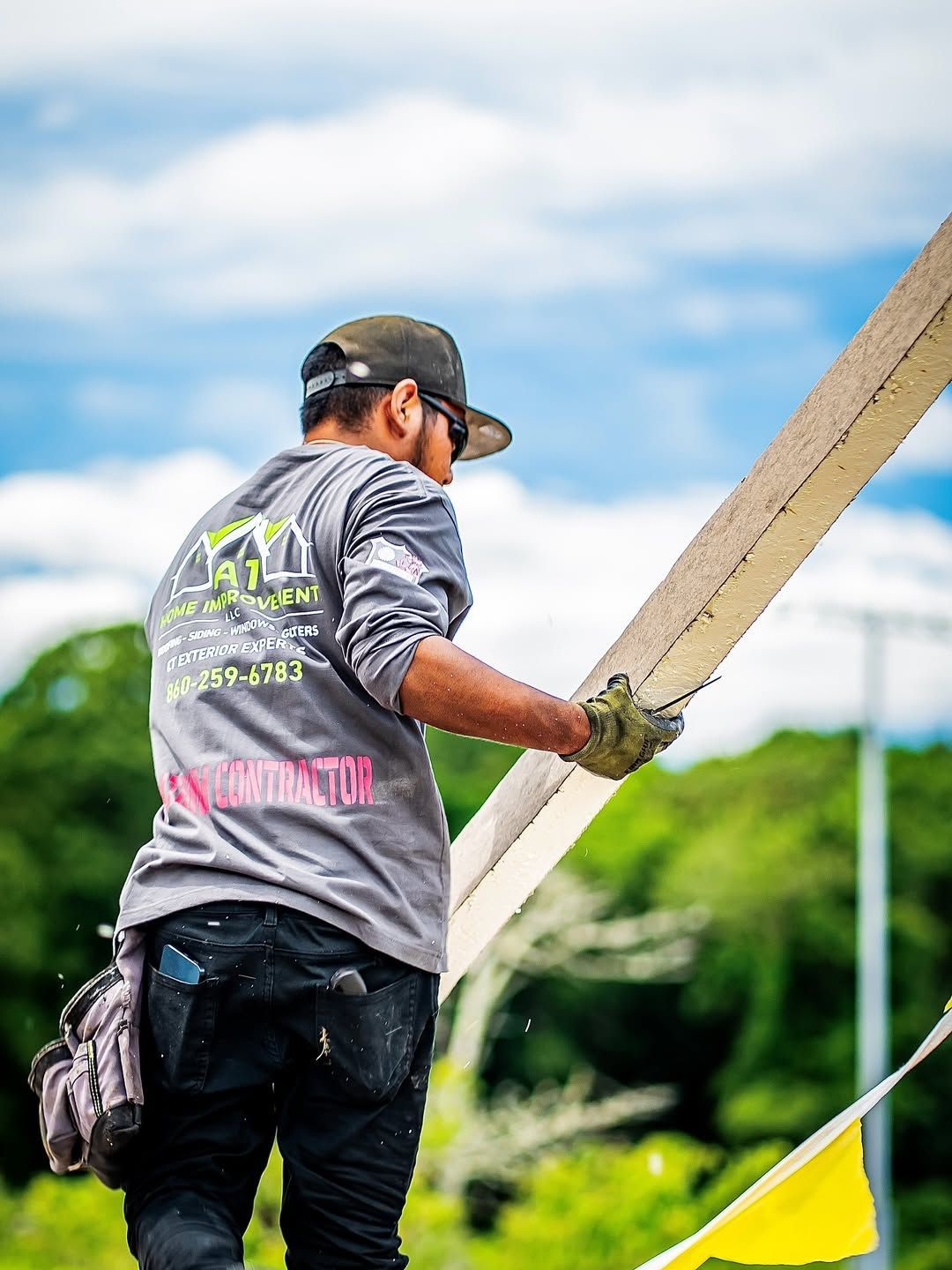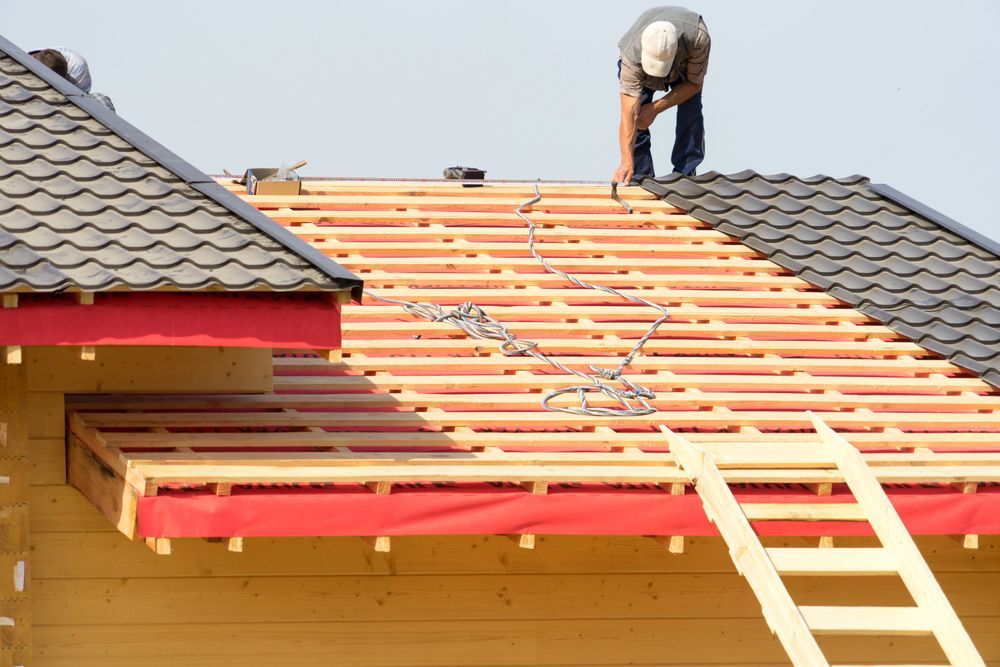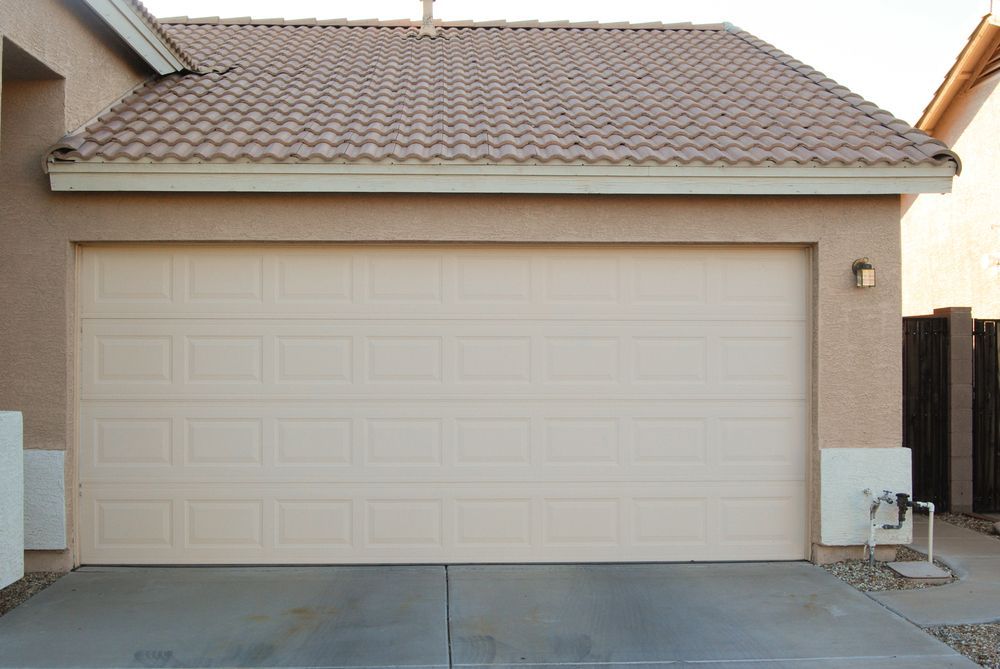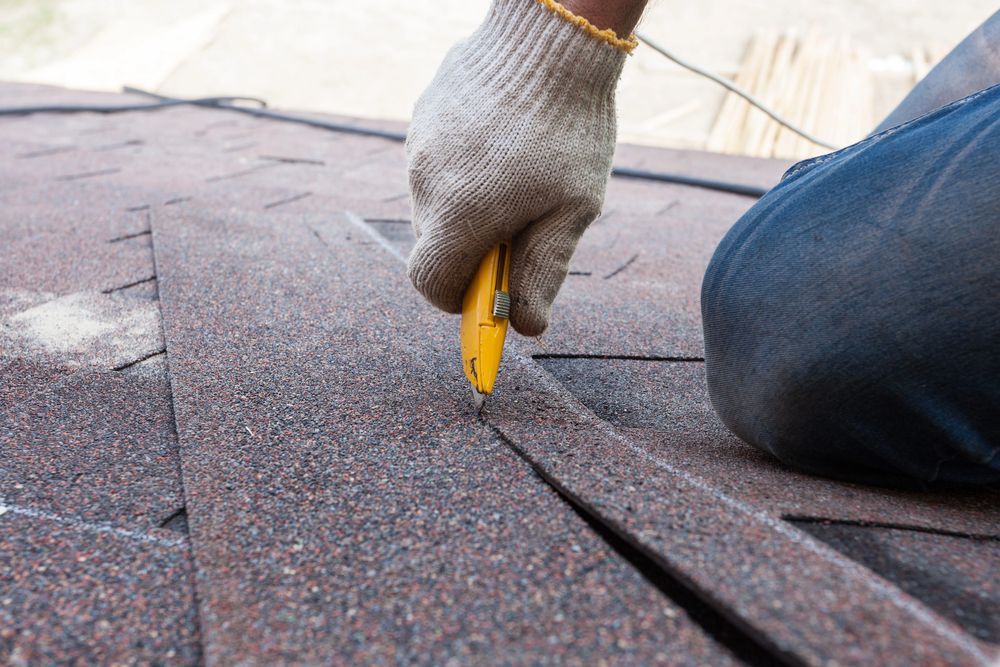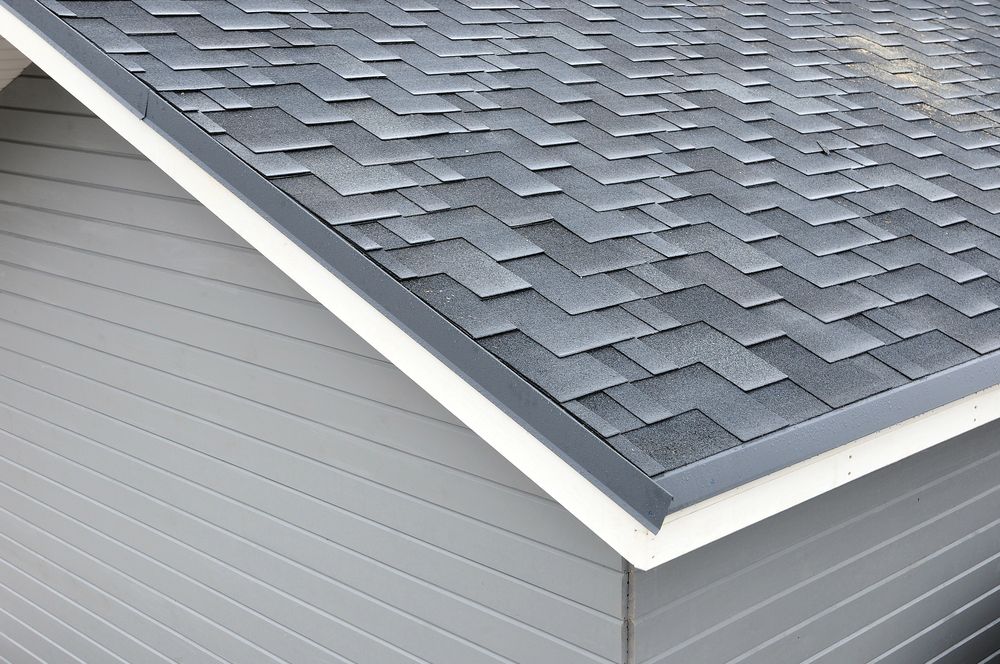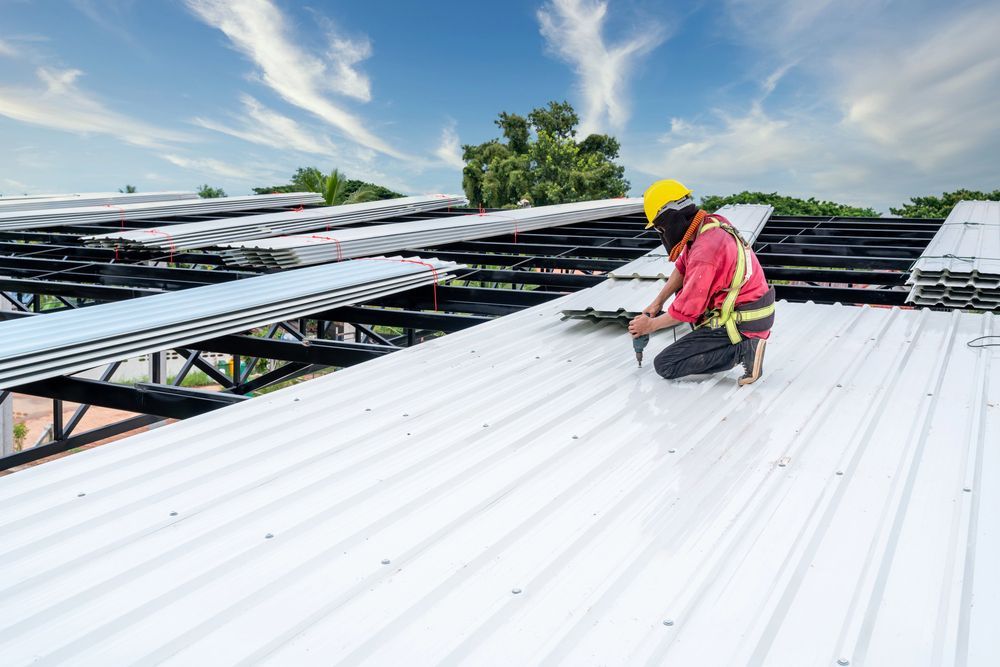Should I Replace Windows or Siding First?
Should I replace windows or siding first? This common question depends on your home’s condition, budget, and energy efficiency goals. This article will give you the insights you need to make the right choice.
Key Takeaways
- Replacing windows first enhances energy efficiency and comfort, while preventing potential damage to new siding.
- If siding is significantly damaged, addressing it first can prevent structural issues and improve overall insulation and curb appeal.
- Consulting with professional contractors provides valuable insights for prioritizing and properly handling window and
siding replacements.
The Benefits of Replacing Windows First
One of the primary benefits of
window replacement is the substantial improvement in energy efficiency. New windows can significantly reduce drafts, leading to a more comfortable living environment and lower energy bills. Homeowners often report feeling a noticeable difference in their home’s temperature stability after installing new windows.
Additionally, new windows can dramatically enhance the aesthetics of your home. A well-chosen window replacement can make your space brighter and more welcoming, improving views and contributing to better indoor air quality. This upgrade not only increases your property’s value but also boosts its curb appeal, making it more attractive to potential buyers in a new window.
Replacing windows first helps avoid potential damage to the new siding. Installing windows first ensures that the window frames and capping are correctly fitted, preventing costly leaks and additional labor expenses. This approach avoids the need to recap existing windows, which can be both time-consuming and expensive.
When deciding, consider the benefits of replacing windows first: optimal energy efficiency, enhanced comfort, and improved property value.
Why You Might Want to Replace Siding First
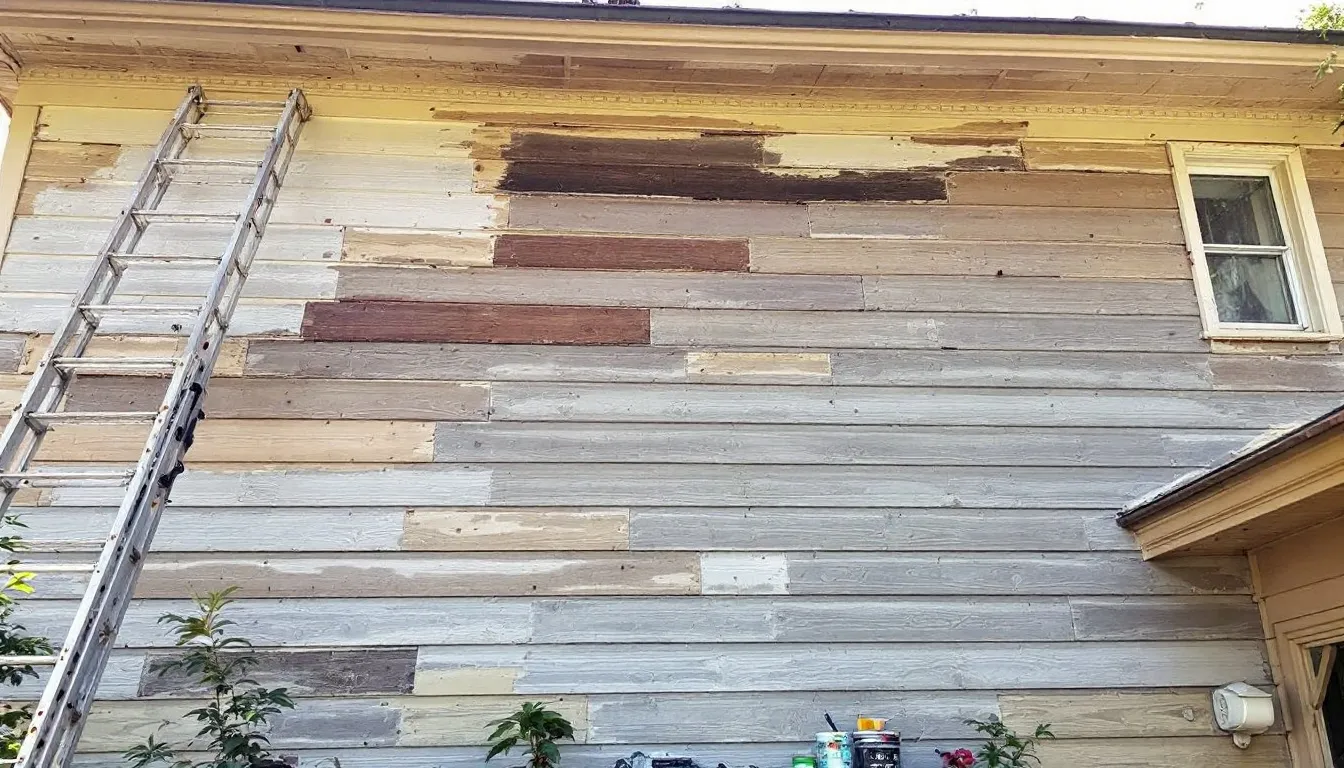
In some cases, replacing siding first might be the better option, especially if your siding is severely damaged or outdated. Signs of significant damage include:
- bubbling
- chipping
- denting
- cracking
- mold growth
These indicate that the siding is beyond repair and needs immediate attention. Prioritizing siding replacement can prevent further deterioration of your home’s structure and minimize future repair costs.
New siding offers better protection from the elements and improves insulation, which can increase energy efficiency and lower utility bills. We also offer Harde Siding, known for its durability and ability to withstand harsh weather conditions, providing a long-lasting solution for your home.
Moreover, new siding can transform the appearance of your home, giving it a refreshed and modern look. This upgrade can significantly boost your home’s curb appeal, making it more visually appealing and potentially increasing its market value.
Consider the Condition of Your Home's Exterior
Consider the condition of your home’s exterior when deciding whether to replace windows or siding first. Visible damage, such as cracks or warping on siding, indicates that it needs replacement to prevent further issues. Fading or discoloration can also reduce your home’s curb appeal, suggesting it’s time for new siding.
Evaluate the severity of the damage. Small holes or insect damage in siding require immediate replacement to maintain structural integrity. Bubbling or blistering under the siding indicates trapped moisture, which could lead to more severe damage if not addressed promptly.
Modern windows with advanced features eliminate drafts and temperature fluctuations, enhancing home comfort. Focus on the area that is more severely damaged and needs immediate attention.
Evaluating your home’s exterior condition can help prioritize the project. Addressing the most damaged area first ensures your home’s longevity and integrity.
Impact on Curb Appeal
Both new siding and windows significantly influence a home’s curb appeal. New windows can enhance your home’s appearance, making it more attractive and increasing its overall property value. This aesthetic improvement can be particularly appealing to potential buyers if you’re considering selling your home.
Damaged siding, on the other hand, can dramatically impact curb appeal by making your home look neglected and allowing elements like wind, water, and animals to enter. Replacing old siding with new, modern materials can completely transform your home’s exterior, giving it a refreshed and updated appearance.
Contrasting colors for windows and siding can create a striking look. Replacing window capping alongside siding enhances exterior appearance.
Cost Considerations
Understanding the cost implications is crucial when deciding whether to replace windows or siding first. On average, replacing all windows in a typical
three-bedroom house ranges from $3,000 to $7,000. In comparison, siding replacement for an 1,800 square foot home generally costs between $8,000 and $10,000, with premium options exceeding $20,000.
When considering the combined cost of replacing both windows and siding, the total expense for an
1,800 square foot home is estimated between $11,000 and $17,000. This significant investment underscores the importance of making an informed decision based on your budget and priorities.
Understanding these costs helps you plan your home improvement project and decide whether to start with window or siding replacement.
Energy Efficiency and Insulation
Energy-efficient windows can lead to considerable savings on energy bills by reducing consumption, particularly when replacing older, less efficient models. Upgrading to energy-efficient windows can potentially
lower energy costs by as much as 50%. This makes window replacement a compelling option for homeowners looking to improve energy efficiency.
However, new siding can also significantly enhance your home’s energy efficiency. If your current siding is damaged and compromising your home’s insulation, high energy bills might be the result. Replacing siding can address these issues and improve overall insulation.
Homeowners may also be eligible for
tax credits under the 2023 Infrastructure Bill
for energy-efficient upgrades, including window and siding replacements. These incentives can help offset some of the costs associated with these home improvements.
Moisture Barrier Concerns
Replacing the moisture barrier when installing new windows is essential to ensure proper sealing and protection. Proper window capping during replacement protects against leaks and water damage, which can be costly to repair.
Simultaneously replacing windows and siding can effectively install a moisture barrier and metal caps, preventing potential damage and reducing the risk of mold. This approach ensures that your home remains well-protected from moisture-related issues.
Window Capping and Siding Installation
Proper installation of window capping is crucial for directing water away from the window, preventing water damage. Replacing windows before siding ensures that the capping is installed correctly, avoiding potential issues down the line.
If siding is installed first, redoing the capping may incur additional costs, emphasizing the importance of the correct order of installation to minimize expenses.
Damaged window capping during siding replacement may need to be replaced to maintain effectiveness. Correct installations prevent future issues.
When to Replace Both Windows and Siding Together
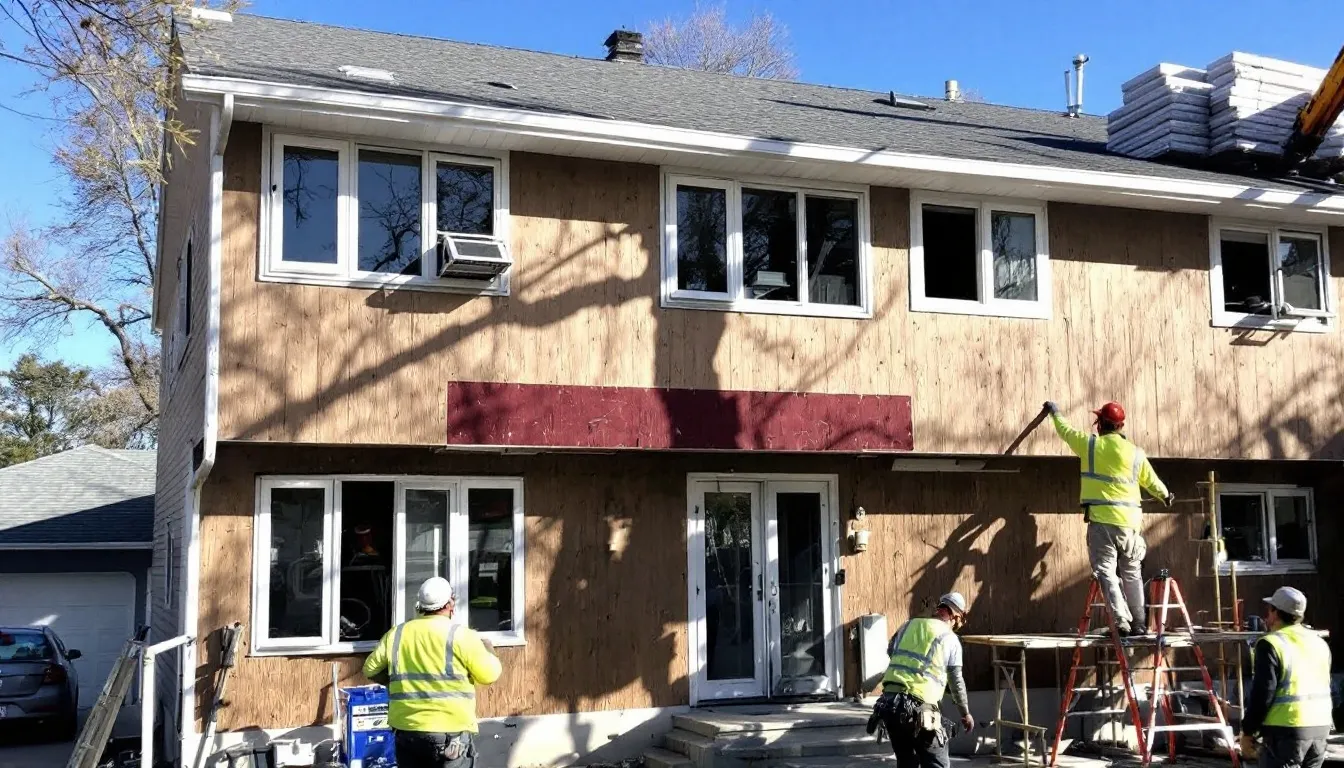
Replacing both the windows and both siding together can lead to significant energy efficiency improvements and potential cost savings. This approach can reduce disturbances and extra charges associated with separate projects.
By coordinating window installation and siding replacement, you can improve installation practices for moisture barriers, ensuring better protection for your home. This comprehensive upgrade can also enhance your home’s curb appeal, making it more attractive to potential buyers.
Contractors often recommend replacing windows and siding simultaneously to optimize scheduling and efficiency, ensuring seamless project completion without delays.
Get Professional Advice

Consulting professionals provides tailored insights for window and siding replacements. Hiring a reputable contractor ensures these complex projects are expertly handled, leading to better results.
It’s also crucial to verify the credentials and experience of contractors before hiring them for replacement projects. This step can help you avoid potential pitfalls and ensure that your home improvements are done correctly.
Summary
In summary, whether to replace windows or siding first depends on various factors, including the condition of your home’s exterior, cost considerations, and energy efficiency goals. By carefully assessing these factors and consulting with professionals, you can make an informed decision that enhances your home’s value and comfort. Remember, the right choice can lead to significant long-term benefits for your home.
FREQUENTLY ASKED QUESTIONS
About Windows and Siding
Share this Post
